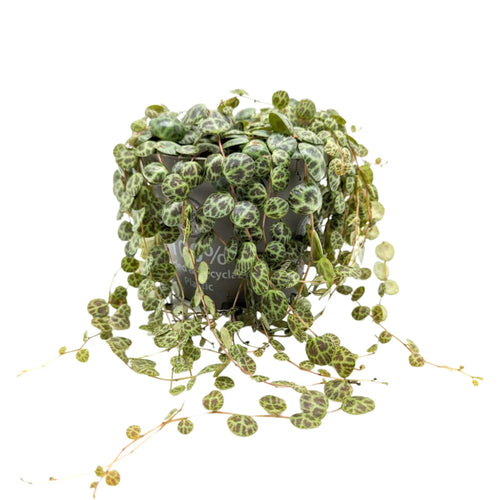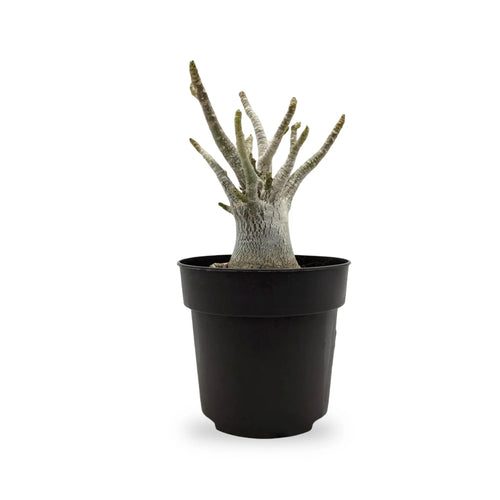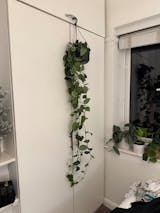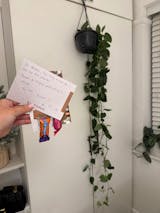If you're exhausted of annoying flies entering your home, consider adding some natural protections like houseplants. Certain plants can improve your living area and also serve as powerful fly repellents. In this post, we will look at the plants that avoid insects to keep your house insect-free. These UK houseplants involve lavender, basil, mint, lemon balm, chrysanthemums, sage, and marigolds. Each of these plants has a distinct odour that flies find unpleasant. Continue reading to learn about the benefits of these fly-repelling houseplants and how they may improve your home's beauty and functioning.
Natural Solutions For A Fly-Free Home
Lavender
Lavender plant is popular because of its vibrant purple blossoms and relaxing aroma. Beyond that, this plant is an effective insect repelling agent. The essential oils in lavender naturally prevent flies. It makes this a perfect choice for keeping your house free of bugs. Lavender grows best in bright locations, so place it near windows or places where flies are likely to come in. Lavender gives elegance to your environment while keeping pests away.
Whether grown in pots or utilised as hanging flowers, the outcomes are the same. Fresh lavender bouquets can also be placed near drawers to provide protection. This plant can improve the look of your home. Additionally, it is ideal for both experienced gardeners and those who are new to indoor planting.
Basil
Basil is a tasty herb for cooking. It is also an effective insect protector. Basil is known for its powerful scent and ability to repel flies and mosquitoes. Place basil in sunny areas such as kitchen windowsills or outside patios where flies are a typical problem. This adaptable house plant can be grown in pots or as hanging plants. It provides a touch of greenery while keeping insects away.
Basil is very easy to care for. Also, it grows in moist conditions with lots of sunshine. This plant has a dual role, serving as both a herb for cooking and a natural insect opposite. Its insect repellent features make it an excellent alternative for anybody wishing to establish a fly-free home without the use of chemical sprays. Moreover, you'll always have fresh basil available for your favourite recipes.
Mint
Mint is a plant well known for its fantastic aroma and cooking use. Not only this, it is a perfect barrier for flies and ants. The strong minty fragrance keeps out the insects and makes it an excellent natural pest control solution. Mints can be planted indoors in tiny pots or in hanging baskets. It adds both practicality and greenery to your home. This plant grows in moderate sunshine and moist soil, making it an easy-to-maintain houseplant.
Mint leaves may also be used in tea and other meals to add a fresh flavour. Whether you select peppermint, spearmint, or another species, this herb is a versatile plant that can improve your home atmosphere. For best results, place this plant near windows or other areas where flies gather.
Lemon Balm
Lemon balm is a citrus-scented plant that not only offers a pleasant perfume to your house but also efficiently restricts insects. Many flies dislike the strong and lemony aroma. That's why lemon balm is a great natural insect remover. This houseplant can be cultivated indoors in pots which gives a flexible pest control solution.
Lemon balm thrives in partial sunshine and it is quite simple to care for, even by beginners. Aside from its insect-preventing abilities, lemon balm is also known for its calming powers and may be used to produce relaxing beverages.
Chrysanthemums
Chrysanthemums are usually known as mums. They are colourful flowers that can brighten any home. They distract flies and other insects from your house. These blossoms contain the natural pesticide that works against ants and roaches. Chrysanthemums are one of the most popular UK houseplants. They are recognized for their vibrant colours and ease of maintenance.
They grow in well-drained soil and demand lots of sunshine. That's why they're perfect for planting near windows. In addition to fighting insects, chrysanthemums are known to cleanse the air. It improves the overall environment in your house. Whether you pick yellow, red, or white variations, these blooms brighten up your room. Keep chrysanthemums in your house to create a pest-free and lively living environment.
Sage
Sage is a multipurpose plant- it is also used in cooking several recipes. Moreover, it also acts as a barrier for insects. Its strong and earthy smell hinders mosquitoes and other pests, making it a great insect controller. Sage may be also grown inside the pots or as hanging baskets and flourishes in sunny locations. The plant's oils contain chemicals like camphor and cineole, which repel insects when released into the air.
When dried sage bundles are placed near windows, it offers both aesthetic and practical benefits. Sage is an effective and environmentally friendly approach to keep bugs out of your house.
Marigolds
Marigold plants are brilliant flowers that not only beautify your house but also prevent insects. These vibrant flowers have a strong aroma that flies and mosquitoes hate. Marigolds may be nurtured in pots or as hanging flowers, allowing you to position them near entrances or other locations where flies may enter. These flowers are one of the most popular UK houseplants that are easy to maintain and grow in sunny areas even with drainage issues.
Their brilliant orange and yellow blossoms brighten your living area while keeping insects away. Marigold plants may also be used in gardens to protect other plants from pests. It makes them a flexible choice for both indoor and outdoor placements. They are essential for a pest-free house as they provide both beauty and safety.
Conclusion
Incorporating house plants such as lavender, basil, mint, and others not only beautifies your home but also stops flies and other pests. Whether you choose pots or hanging plants, these natural insect repellents are ideal to create a fly-free atmosphere. Visit Leaf Culture to learn more about the best houseplants for your specific needs. Our selection is designed to help you build a healthier, more colourful living environment. Transform your house with plants that do more than simply look nice!










